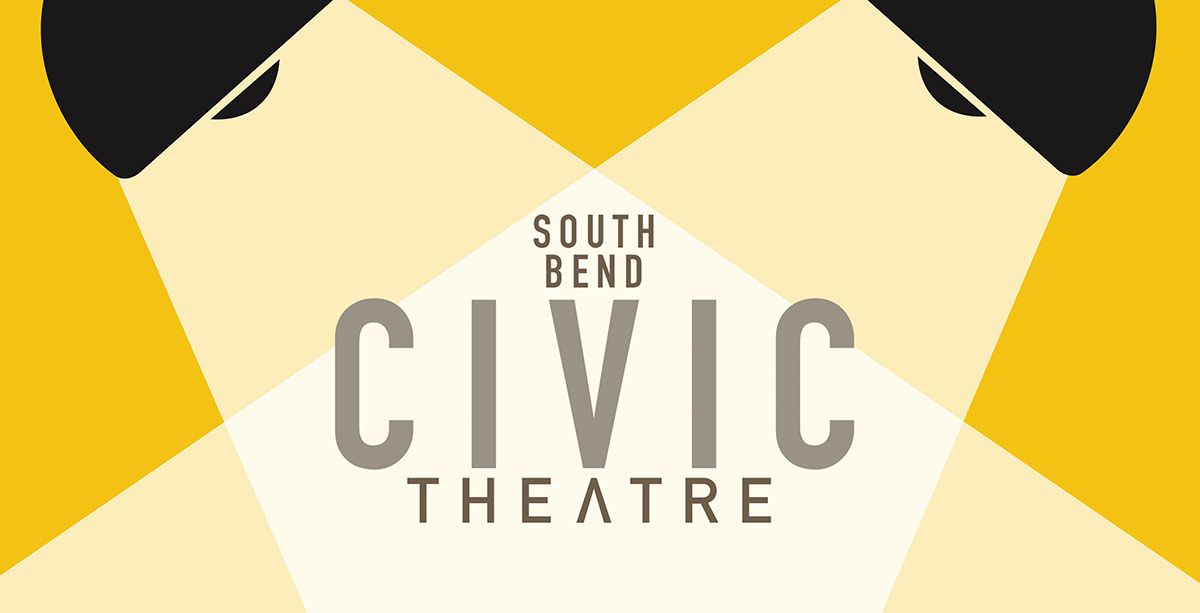Leading Edge
As Executive Director, Aaron Nichols gives a front-row view of the South Bend Civic Theatre when talking with Diane Doyne, Villing+Company Vice President of Client Services.

Q: What brought you to the South Bend Civic Theatre and the Executive Director role?
Aaron: I was just coming back from a stint doing theater in Chicago. My first production was Oklahoma at the Civic, when they were doing performances at the Morris Performing Arts Center. I played Will Parker, and all summer long I was in my driveway learning how to tap dance and do rope tricks at the same time!
I continued doing theater in the region, and just prior to joining the Civic, was with Shakespeare at Notre Dame. I had acted, directed and done a lot of committee work … and originally, I was on the search committee for the Civic’s Executive Director position. I was enjoying talking with national candidates, trying to find the perfect match between candidate and organization. Then, they asked if I would consider stepping down from the search committee and applying for the role. I was humbled, flattered – and honestly, a bit scared. But it was the right time, the right moment. So, I went through a rigorous screening and interview process with board members, staff and patrons, and I accepted the job in May of 2017.
The Civic Theatre was founded in 1957, and more than three generations have called it “home.” As a teenager, I remember taking my mom to see The Secret Garden, which was a favorite of ours. I fell in love with the Civic then. So I feel the weight and responsibility of the role and I’m honored to be doing it.
Q: How has the South Bend Civic Theatre changed over the years?
Aaron: It started at The Firehouse, a local historic landmark on Portage Avenue, which they rented from the City for $1 per year. It was converted into a 60-seat theater, producing about a dozen shows annually. In 2005, they bought the new building on Main Street, which began the transition from an idyllic neighborhood treasure to a downtown, pillar-of-the-community organization. And that was a challenge, because it really did need to shift from being a small community theater to a larger, civic-minded theater. Especially now, when representation, diversity, equity and access are increasingly important, organizations like ours need to reflect our entire community. In one fell swoop, they moved in and became one of South Bend’s cornerstone cultural organizations. That’s a big change. It wasn’t just geographic, it wasn’t just a scale shift – it was an existential upgrade. Now our goal is more than just producing great productions, it’s serving the community. In order to keep this mission front of mind, we’ve adopted this mantra: “We pledge to be a light to illuminate the darkness, a flame to ignite curiosity and imagination, and a beacon to guide all toward hope, unity and understanding.”
Q: What new things are on the horizon for the theater?
Aaron: We’re still being nimble, responding and pivoting around the pandemic. May through August will be all outdoor productions in Mishawaka and South Bend, featuring a variety of performances. In May, the first-ever South Bend Fringe Festival will include about 30 eclectic performing arts groups across seven different downtown venues. We wanted to help regional artists come back without having to deal with venue logistics and COVID restrictions. We’re handling that, so they can have fun and entertain the community. We consider it a resurrection of the arts. Then we’ll move into more traditional programming, like SpongeBob SquarePants: The Broadway Musical in June in Mishawaka’s Central Park.
September through December, we have a full slate of indoor shows planned including Matilda the Musical and Frozen Jr. (for kids), The Rocky Horror Picture Show (for adults) and A Christmas Carol (for everyone). During that time, all shows will be in our downtown South Bend theater or at Mishawaka’s Battell Center.
Q: What has surprised you about working at the theater?
Aaron: I’d say the willingness of the entire Civic family to take this journey with me. I’ve been so humbled by the spirit of our patrons, volunteers, donors, sponsors and others, who said, “Let’s do this. Let’s do this together.” I was concerned there could be a lot of tension around reinventing ourselves, but I haven’t felt that at all. I’ve been profoundly moved by the empathy and compassion of so many who want to help us fling open our doors so that more people can experience the cool things that we do. It has really been a beautiful thing.
Q: What do you do when you’re not working?
Aaron: I know this doesn’t sound exciting, but gardening and renovating my newly-purchased historic home. What I look most forward to is going to support other area arts organizations again. We’re blessed with such a vibrancy of artists and makers; I just love getting out there!